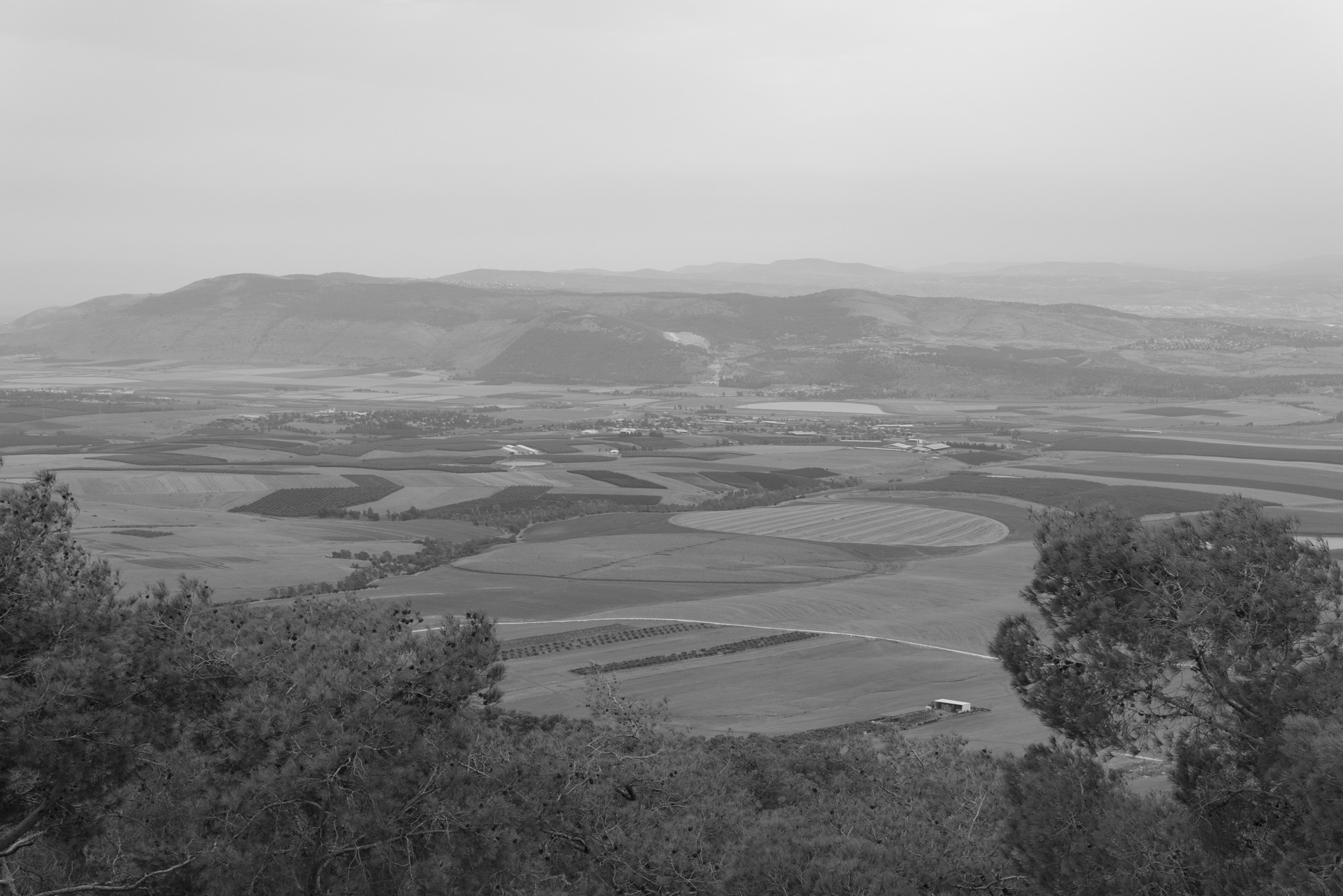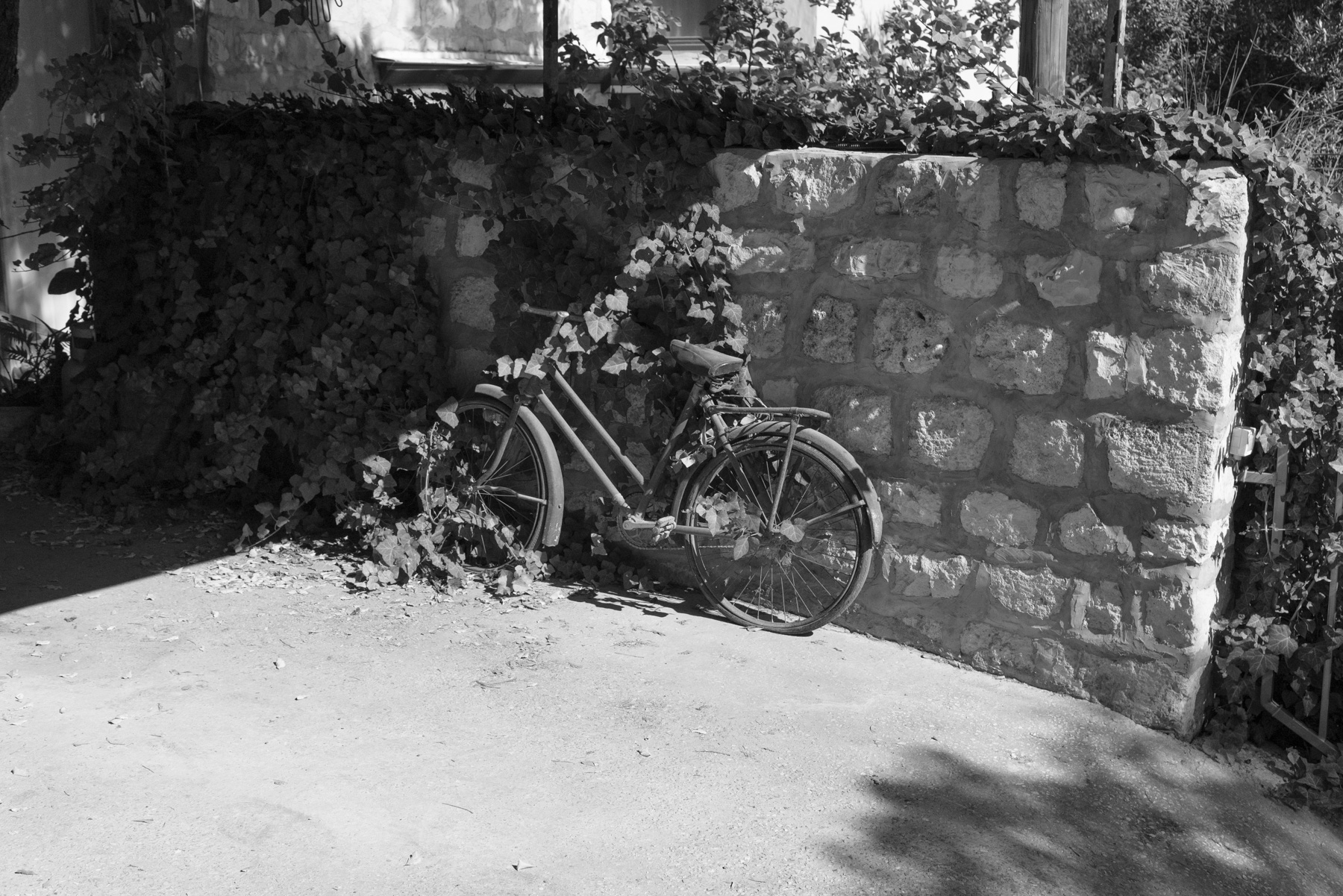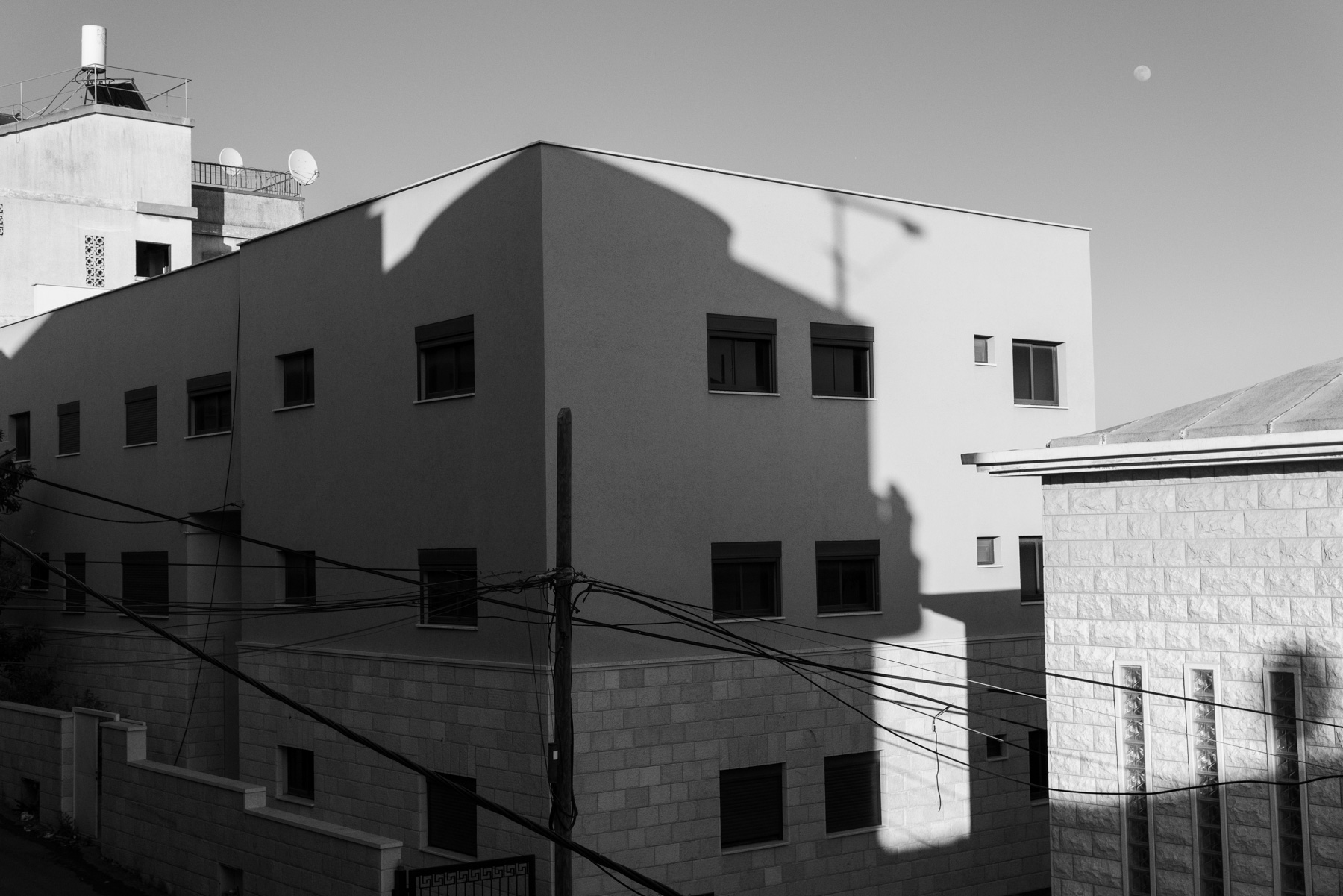
Inheritance
A Story in Three Chapters
By Nabil Harb
Both of my parents are Palestinians whose families come from different parts of our diverse society. My mother’s family is and always has been from Nazareth. They are well-educated city folk who kept diaries, wrote and published books, drove cars, and meticulously recorded their lineage on a family tree. The city of Nazareth stands out in the contemporary history of Palestine because, thanks in part to the last-minute decision of a Canadian-Israeli commander in the Israeli Occupation Forces, it was not depopulated during and after the Nakba in 1948. Many other Palestinian villages and cities suffered a much worse fate, becoming the sites of massacres and mass-expulsions when Zionist forces invaded. Word spread about Nazareth’s unique circumstance and many Palestinians fled to the city, and this is how my father’s family arrived at Nazareth. Hailing originally from the village of Silwad in what is now known as the West Bank, my grandfather left behind more than half of his family and brought my grandmother and their children to this safe haven. The Silwadi side of my family was not educated in the traditional sense, having always preferred the lessons taught by a scrape on the knee, the swift kick of a donkey, or the sting of a nettle improperly removed from the garden. Their stories about one another and our lineage are shared in huddles outside over coffee or at dinner with the extended family. A chunk of lamb flies from my uncle’s mouth as he’s telling me about the Israelis who wouldn’t pay him for his work in 1988 or how his cousin beat him up over a girl in 1967.
I’ve been writing my own record of the stories and experiences shared with me by my father and others from his side of the family. This short story here is part two in a series of three installments for Three Fold, where I delve into particular moments in our family’s history, accompanied by photographs made during my last extended trip to our homeland in 2018. These stories jump across time to consider the cleaving and suturing of our communities and our lands, bringing a wider historical scope to the history of our people. I want to think about how, in defiance of all the forces meant to eradicate and contain us, we always return to our landscape and to one another.

Chapter Three
1967
J, only ten years old at the time, awoke in the back seat of the car to the raucous fighting of his two younger sisters. The combination of the heat from the sun and the bumps in the dirt roads lulled him to sleep but their screams startled him back to consciousness.
“Shut up,” he snapped at them. “Don’t you see I’m sleeping?” Even at ten, J’s face seemed stern, almost sullen. He was quite serious for a child of his age, though generally well-tempered. His sisters were surprised by his outburst, somewhat uncharacteristic of him, and settled immediately. Being the eldest sibling in the room is not a luxury often afforded to the middle child of eight kids (there would eventually be nine), and he took advantage of this rare dynamic to get through this drive. He folded his arms, leaned on the door of the car, and tried to return to sleep.
Ahmad, their father, was driving the car and had given up attempting to quell his young daughters in the back seat and decided to focus on the road instead. He was so focused that he didn’t notice J yelling, nor did he notice the newly-found quiet in the car. He was deeply entranced with his daydreams of their destination: Silwad. Ahmad was going to see his parents for the first time since 1947.
Since the Nakba in 1948, the occupied region now known as the West Bank was under Jordanian rule and therefore inaccessible to Palestinians living within the lands seized by the new colonial state of Israel. This ruptured everything about Palestinian society, and some of the most traumatic effects came from the indefinite separation of families. The Naksa of 1967, or the Six-Day War, as it’s called, finished what the Nakba started by restoring and expanding Israeli control of much of Palestine through the expulsion of another 300,000 Palestinians from their lands and homes. Those who fled Silwad, for instance, were unable to return. Now that Israel regained control, a new geopolitical arrangement formed allowing Palestinians within Israel to cross back into the West Bank, though Palestinians in the West Bank were not and still are not allowed to enter Israel. These circumstances, in some underhanded form of resistance against the occupation, allowed my father, J, to take the car ride from Nazareth to meet family in Silwad for the first time. Checkpoint after checkpoint came and passed with varying degrees of difficulty, but ultimately J, his father, and two sisters made it to the beautiful village they’d been hearing about since they were born.
J’s grandfather, Hasan, rushed from the house and grabbed his grandchildren, then his son, and then his grandchildren again. The end of 20 years of separation overwhelmed the family and everyone cried, praising God repeatedly, because they couldn’t think of anything else to say. Taken by the emotions of the moment, J’s younger sisters began crying mostly because they were confused. The time stolen from this family and the distance finally bridged were incalculable to such young children. What they could grasp, and had in fact been looking forward to, were all the new kids they could meet and play with when everything calmed down.
Introductions continued for almost an hour. People from all over Silwad popped their heads in to see the visitors. J was told by people he never met that his big eyes or his crooked teeth or his ears or his brown skin looked like the son or the cousin or the neighbor of other people he did not know. It reaffirmed his connection to this place.
Ahmad sat in the salon with his parents and siblings for something like a generational catch-up. The girls ran around their grandfather’s garden with their new cousins to chase the chickens and eat the oranges. J was whisked away in a car by older cousins and given the grand tour of Silwad. He was shown the homes and lands of other family members—or, in several cases, where they used to be. He was driven to corners of the village and heard stories about who did what where, everyone ostensibly related to him in some way. J struggled to take it all in. His arrival allowed the Silwadis to see this village with fresh eyes, which was a relief from the sociopolitical blows they faced being reoccupied by Israel. Its beauty was novel to them again, thanks to the reunification of their family. They stopped at the bakery (formerly Abu Kamel’s bakery) to eat a snack before they continued to the now-abandoned school where almost all of his family, including his father, had attended.
They arrived at a golden hour. While the exterior was not particularly impressive, J was taken aback by the damage the school had endured. His cousins went on amongst themselves about their memories and J approached the building. It was covered in bullet holes that looked like tiny craters on the moon. He dragged his finger down the surface and watched as it went up onto the painted concrete surface and back down into the bullet holes, as if it was running along a fence. He rubbed the dust between his finger and thumb and watched it float away into the air, lit by the pink light of the Palestinian sunset.
The boys entered the classrooms before dark. Recounting of memories continued and deepened as the group explored the building that contained so many of their most cherished experiences of a time now past. They continued until J saw something on the blackboard that stopped him in his tracks. He was confronted by the traces of some family he never met who had been expelled forever, or ran way and could not return, or whatever the story was. On the board, scraped into the paint in Arabic, read “Ismail and Yusuf Harb were here.”

1982
J punched out of work at the Denny’s near campus, poured himself a large coffee to-go, and set off on the 25-minute trek amidst the freezing December winds in East Lansing, Michigan. He was sharing an apartment with several other Palestinian college students. Many of them had little to no money and needed to crowd an apartment to afford it. Letters and packages came frequently to other guys, but rarely for J. Postage was expensive and his family didn’t have the money to correspond often, so when he arrived home and opened the mailbox, he was surprised to find something addressed to him. Exhausted by the idea of having to comb through more English that day (a task for him, at this point) he was about to leave the letter and inspect it later, until he looked closer and noticed it had been sent by Yusuf.
He had never met Yusuf but had spent his entire life hearing about him and other older cousins whose absence created lore around their lives for the younger ones, especially those who grew up outside of Silwad. The questions rolling through his mind about how Yusuf knew his whereabouts, including his address, paled in comparison to the sense of urgency: Despite how or why, this letter was in his hands.
This is the second time, but not the last, that Yusuf managed to elicit this kind of shock from J.
After exchanging letters over the next few weeks, J learned that Yusuf had moved to the States for school several years prior and was in his final years of a PhD program at a university in Illinois. They decided that they must meet. J would drive the eight hours with a friend to visit Yusuf and lay eyes on his long-lost cousin for the first time, in the flesh.
J and his friend Sami took off on a Friday. Timing worked out so that Yusuf would be returning to town from an academic conference that next morning. J wanted to get there early to make the most of the brief time they’d be spending together.
The guys left East Lansing hungry, saving their money for gas. They kept reassuring themselves that they’d eat when they got to Yusuf’s. He would surely have food at the apartment, they told themselves. And when it was Sami’s turn to drive, J stared at the album of family photographs he packed with him when he moved. He brought them now to show Yusuf the family—his family, whom he’d never met. Photographs of weddings and funerals, pictures of J’s high school graduation in Nazareth, his nieces and nephews.
In the back of the album was a black-and-white photograph taken before J was born, given to him by his father. It was a group portrait of the family in Silwad. There were his mother and father and his grandfather Hasan, all of his children, and some of their children, too. In the corner were two young boys that J had always been told were the brothers Yusuf and Ismail. He looked closely at the image. His cousin’s features were abstracted by the grain of the film at this scale. J hunched over and strained his eyes to focus, but still couldn’t tell if that was actually Yusuf’s nose or a cluster of rogue silver crystals on the print’s surface. He leaned back and closed his eyes. His stomach grumbled with hunger. Soon it wouldn’t matter. The photograph had been a placeholder.
Sami and J finally arrived at Yusuf’s apartment. He left a key under the doormat so they could enter when needed, and the guys were greeted by the desolate suggestion of a bachelor pad. A couch and two folding chairs comprised the living room furniture and Yusuf’s bed was an air mattress. It was so empty that Sami, pretending to be a realtor, made a joke about how the apartment was move-in ready. At least it was clean, J thought to himself.
The kitchen was worse. The pantry held only cobwebs in its corners and when they opened the refrigerator, their hearts sunk. Two beers sat in the door of the otherwise completely empty fridge. They drank a beer each as dinner, and called it a night. Sami took the air mattress and J slept on the couch. He stared at the ceiling for so long that he began to see little spots in the dark that moved around and recombined, forming the face of a young Yusuf that J was still trying to decipher in his mind’s eye. Like the silver crystals on the photographic print, reacting one by one to a developer, the image became clearer and then dimmed again. He fell asleep when it faded out, but his mind was still buzzing with imagery of his family, memories of that land. He was excited to meet his cousin for the first time, to return home again in this way, to be closer to Silwad once more.
Nabil Harb (b. 1992) is a Palestinian American artist born and raised in Central Florida.
Read Inheritance, Chapter One
Read Inheritance, Chapter Two
Lead image: Northern West Bank, 2018
Fig. 2: Bike in Silwad, 2018
Fig. 3: Nazareth, 2018
Read next: Imaginary Dinner Party, Part Fourteen by Lynn Crawford